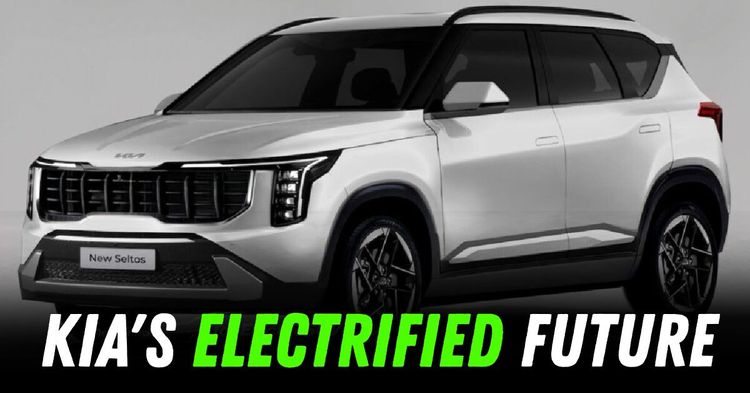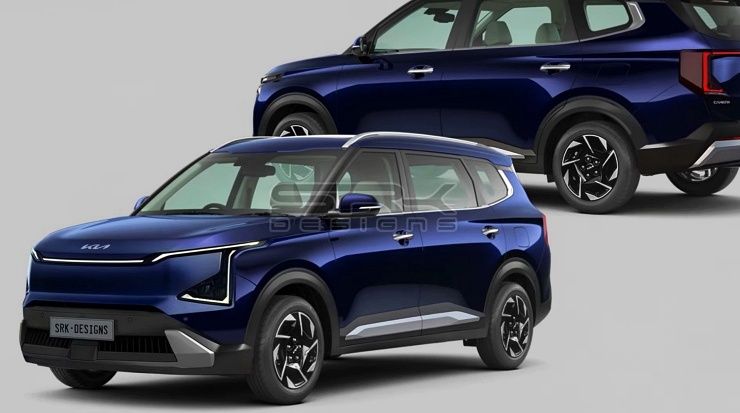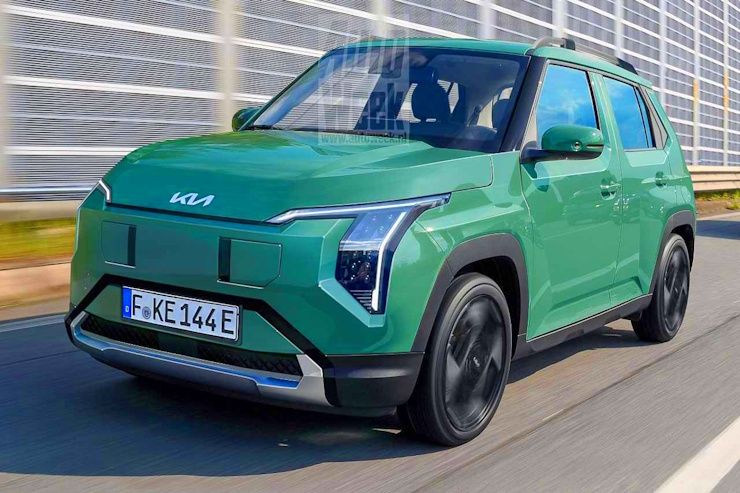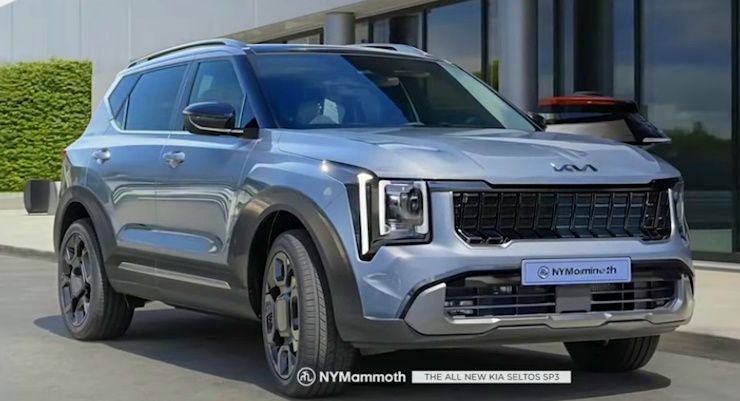4 Out Of 10 Kia Cars Sold In India Will Be Electrified: 3 Big Launches Soon


Kia India is preparing for a major shift in the way it sells cars in the country. By 2030, the company expects 4 out of every 10 cars it sells here to be electrified—either fully electric or powered by strong hybrid systems. It’s a clear sign that Kia isn’t waiting for change to happen. Instead, it’s actively shaping the future of personal mobility in India.

This move comes at a time when car buyers are navigating a confusing mix of rising fuel prices, evolving emissions regulations, and increasing curiosity about cleaner alternatives. Electric cars are certainly gaining attention, but full-scale adoption has been slow due to concerns about charging infrastructure, long-distance usability, and pricing. That’s where strong hybrids step in—as a practical middle ground. Kia’s upcoming portfolio reflects exactly this thinking, with three major launches lined up to offer buyers more electrified options across budgets and needs.

Among the first of Kia’s big launches is the all-electric version of the Carens, expected to arrive by mid-2025. For families who’ve been waiting for a spacious, feature-rich, and long-range EV, this could be the answer. The Carens EV is likely to offer a range of up to 500 kilometres on a single charge, a number that could finally tackle range anxiety for everyday use and long drives alike.
What sets the Carens EV apart is its positioning. It’s not just another electric SUV—it’s one of the few electric MPVs designed for Indian families, offering three rows of seats, generous boot space, and a cabin packed with features like wireless charging, ventilated seats, sunroof, and six airbags. Advanced safety tech, including ADAS (advanced driver assistance systems), is also on the cards.
The Carens EV will likely share its underpinnings with the upcoming Hyundai Creta EV but may come with a larger battery option to justify its MPV role. Priced expectedly between ₹16 lakh and ₹20 lakh depending on the variant, it is set to compete with Mahindra’s XUV.e9 and BE.6, while also offering a more mainstream alternative to premium models like the BYD e6.

While the Carens EV aims to take care of large families, Kia’s Syros EV will target the urban commuter looking for a compact and practical electric vehicle. Set for launch in early 2026, the Syros EV will likely become Kia’s most affordable EV offering in India, with prices expected to start at around ₹14 lakh.
This compact SUV will be based on a modified version of Kia’s K2 platform and will feature two battery options—42 kWh and 50.4 kWh—with a claimed range of around 450 kilometres. Though it shares its footprint with the ICE version of the Syros, the EV variant will get design tweaks and EV-specific styling to set it apart.
Features like a panoramic sunroof, 12.3-inch touchscreen, ventilated seats, ambient lighting, and Level 2 ADAS will make the Syros EV one of the most feature-loaded compact electric cars in its class. It’s aimed squarely at the Tata Nexon EV, Mahindra XUV400, and MG’s upcoming Windsor EV. What gives the Syros EV a clear edge is localisation—being built at Kia’s Anantapur plant, it is expected to offer strong value and lower cost of ownership.

Kia’s third big launch—planned for the festive season of 2026—is the next-generation Seltos, and this time, it’s coming with a strong hybrid powertrain. This model is more than just an update. It marks a strategic shift in Kia’s fuel mix, especially as diesel engines start taking a back seat.
The new Seltos will be larger and more feature-packed, with a 1.5-litre petrol engine working in tandem with a strong hybrid system. This setup is expected to offer brisk performance, much better fuel efficiency than the current petrol models, and significantly lower emissions than diesels.
For buyers who have traditionally relied on diesel SUVs for their long-distance efficiency and punchy performance, the Seltos Hybrid promises a smoother, quieter, and cleaner alternative—without the regulatory baggage that diesel is beginning to carry in Indian cities. Pricing is expected to hover between ₹18 lakh and ₹22 lakh, placing it alongside the Grand Vitara and Urban Cruiser Hyryder in the growing strong hybrid SUV segment.

Beyond these three key models, Kia is also working on bringing strong hybrid technology to its Sonet compact SUV, with a launch expected around the festive season of 2027. This will further broaden its electrified range and bring hybrid technology into more affordable territory, likely between ₹12 lakh and ₹16 lakh.
Importantly, Kia isn’t planning to abruptly ditch petrol or diesel. The approach is gradual. Petrol engines will continue to be offered where they make sense, but diesel offerings—especially in the compact and midsize SUV segments—will be slowly phased out in favour of hybrids. This gives buyers a smoother transition path and more choices without the fear of being stuck with outdated technology.
For Indian car buyers, Kia’s roadmap is both exciting and practical. Whether you’re a family looking for a spacious EV, a city commuter exploring electric options, or someone simply trying to reduce fuel bills without going fully electric, Kia is working on something for you. What stands out is the timing—Kia’s EV and hybrid launches are not far-off concepts but real products arriving over the next two to three years.
With the Carens EV, Syros EV, and Seltos Hybrid leading the charge, Kia’s upcoming electrified lineup offers a compelling mix of affordability, practicality, and forward-thinking. These aren’t halo products meant just to show off technology—they are built for real Indian roads, users, and wallets. And if you’re planning a car purchase anytime between 2025 and 2027, Kia’s future-ready options are well worth a look.